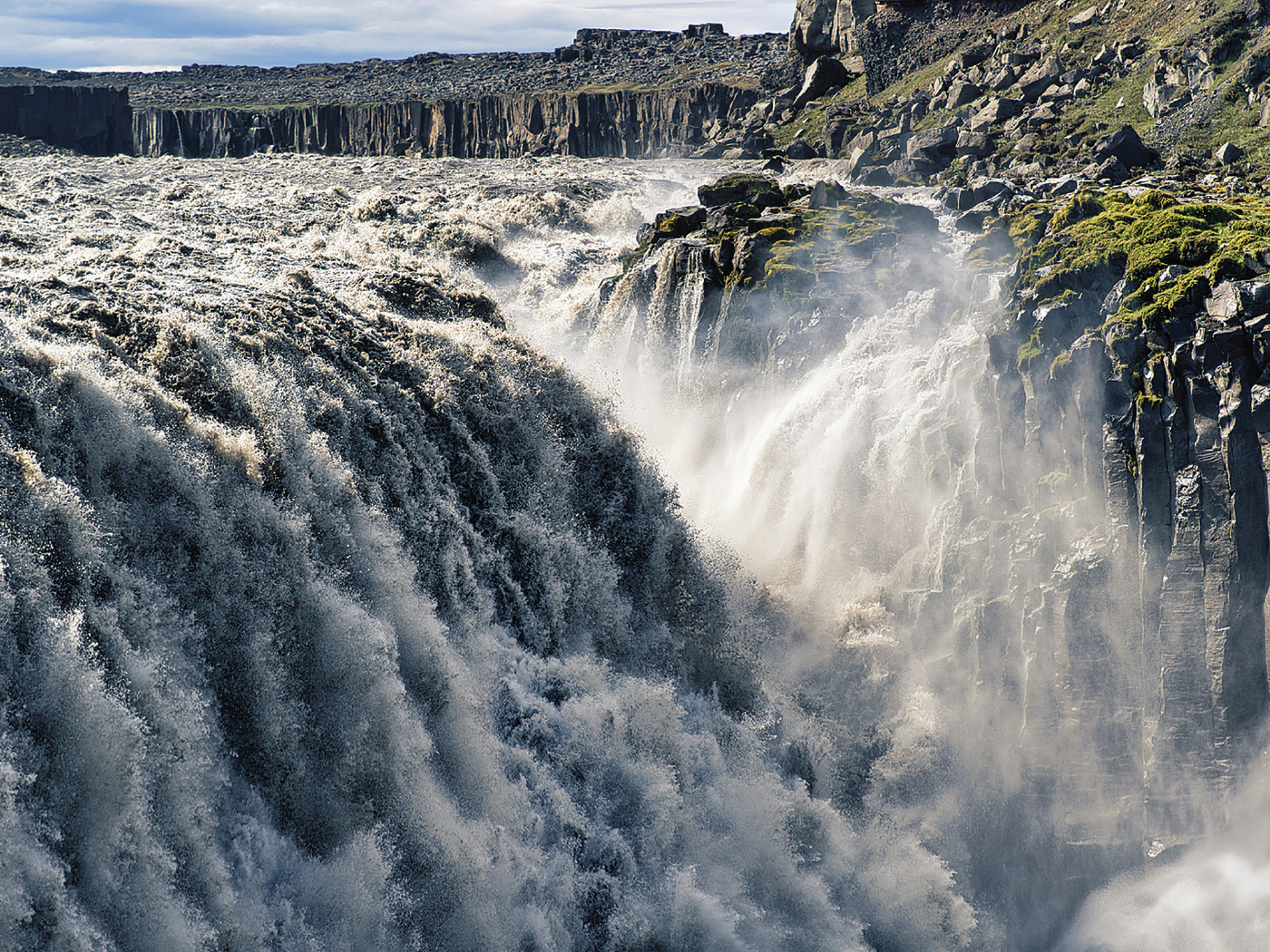Some years ago, the Philadelphia Daily News published a cartoon characterizing Christians who hold to the fundamentals of the Bible as out of touch with reality. As an educator, I found it particularly offensive. Sammy, standing on the Bible in a classroom with his back to the others, was looking at a flat "globe" of the earth. The other students and teacher, with quizzical looks on their faces, encompassed a normal (i.e. round) globe. The teacher, presumably responding to a student's question, is depicted as saying, "Because Sammy's mom is a fundamentalist, that's why."[1] The intent seems to be to ridicule Bible-believing Christians and their view of science. Apparently neither the cartoonist nor the editors realized that Christopher Columbus, a round-earth activist of the highest degree, was driven far more by the Bible than by the science of his day. A dedicated student of the Scriptures, he put his faith into action.
At last, after almost 500 years, Libro de las profecias (Book of Prophecies), written and compiled by Columbus, may be seriously considered in English! In her Christopher Columbus - His life and discovery in the light of his prophecies,[2] Kay Brigham has provided translations of major portions and analysis of his book. She describes it as "a compilation of passages from the Bible which the Admiral believed were pertinent to his mission of discovery, selected by Columbus himself with the help of his friend, Fray Gaspar de Gorricio."[2] Excerpting from folios 4-6 (using her book as source), I quote Columbus, who in turn was addressing his Spanish sovereigns:
"At this time I have seen and put in study to look into all the Scriptures, cosmography, histories, chronicles and philosophy and other arts, which our Lord opened to my understanding (I could sense His hand upon me), so that it became clear to me that it was feasible to navigate from here to the Indies; and He unlocked within me the determination to execute the idea. And I came to your Highnesses with this ardor. All those who heard about my enterprise rejected it with laughter, scoffing at me. Neither the sciences which I mentioned above, nor the authoritative citations from them, were of any avail. In only your Highnesses remained faith and constancy. Who doubts that this illumination was from the Holy Spirit? I attest that He (the Spirit), with marvelous rays of light, consoled me through the holy and sacred Scriptures . . . encouraging me to proceed, and, continually, without ceasing for a moment, they inflame me with a sense of great urgency. . . .I am the worst of sinners. The pity and mercy of our Lord have completely covered me whenever I have called (on Him) for them. I have found the sweetest consolation in casting away all my anxiety, so as to contemplate His marvelous presence.
I have already said that for the execution of the enterprise of the Indies, neither reason, nor mathematics, nor world maps were profitable to me; rather the prophecy of Isaiah was completely fulfilled . . . .
Your Highnesses, remember the Gospel texts and the many promises which our Savior made to us, and how all this has been put to a test: (for example) St. Peter, when he leapt into the sea, walked upon (the water) as long as his faith remained firm. The mountains will obey anyone who has faith the size of a kernel of Indian corn. All that is requested by anyone who has faith will be granted. Knock and it will be opened to you. No one should be afraid to take on any enterprise in the name of our Savior, if it is right and if the purpose is purely for His holy service . . . . The working out of all things was entrusted by our Lord to each person, (but it happens) in conformity with His sovereign will, even though he gives advice to many. He lacks nothing that it may be in the power of men to give him. O, how good is the Lord who wishes people to perform that for which he holds himself responsible! Day and night, and at every moment, everyone should give Him their most devoted thanks."[2]
Noted author, Simon Wiesenthal, in his Sails of Hope, confirmed earlier what is now clear from Columbus' own writings:
"That religious elements played a great part in Columbus's thoughts and actions is evident from all his writings. It may come as something of a surprise to us that his concept of sailing west to reach the Indies was less the result of geographical theories than of his faith in certain Biblical texts -- specifically the Book of Isaiah."[3]
William Loren Katz, though affirming Columbus' "enormous skills, courage and ambition," added that "Columbus carried in his heart the burning embers of hate" and repaid the "generosity" of the natives with "treachery."[4] Others have similar concerns.
Sadly, exploitation of peoples and lands followed in Columbus' wake, and Columbus himself contributed in part. His own testimony of being "the worst of sinners" has already been mentioned, but he also viewed himself as "Servant . . . of the Most High Saviour, Christ the Son of Mary."[5] He trusted apparently in Creator Jesus who forgives the sins of repentant sinners. Indeed, he named the very first island he landed on San Salvador out of regard for his "Holy Savior" (translation).
The esteemed Harvard historian, Samuel Eliot Morison, who dedicated a copy of his Pulitzer Prize-winning book, Admiral of the Ocean Sea to his "shipmate," Lieutenant Commander Millard J. Klein, Kay Brigham's father,[2] was more generous in his appraisal of Admiral Columbus. He wrote, "I cannot forget the eternal faith that sent this man forth, to the benefit of all future ages."[6] Columbus sought the conversion of the natives. On the premise that people are lost without Christ, such a concern could be interpreted as an expression of genuine love rather than of hate. He prayed on San Salvador:
"O Lord Almighty and Everlasting God, by Thy holy Word Thou hast created the heaven, and the earth, and the sea; blessed and glorified be Thy Name, and praised be Thy Majesty, which hath deigned to use us, Thy humble servants, that Thy holy Name may be proclaimed in this second part of the earth."[7]
According to Morison, Columbus and his family were different from many of the others who wanted "to get gold quick and go home." Only Columbus, "his family and a few faithful, humble souls" cared for establishing a "permanent settlement" and the transfer of Christianity to the Indies.[6]
Morison was not unaware of some of Columbus' shortcomings, but he also wrote of his "humanity:"
It was to Columbus' credit that humanity prevailed over glory. It must have been a temptation to parade this brilliant savage royalty with their gold and feather ornaments at court. But he thought of the cold weather in which they would suffer and die, of what the pretty daughters might expect from his seamen, of the disillusion that would await these innocent souls in Castile. So he took compassion on them, declined the cacique's request, and sent the Indians ashore in the ship's boat after receiving their homage and fealty.[6]
Kay Brigham's assessment of Columbus is very positive: "On account of faith -- 'being sure of what we hope for and certain of what we do not see' (Hebrews 11:1) -- Columbus discovered America, the most significant event for the human race after the birth, death, and resurrection of the Savior of the world. Faith liberated Columbus from the chains of human myopia, launching him on a divine mission and propelling him to a providential destination . . . initiating the histories of the United States, Canada, and the numerous American Republics and the phenomenal expansion of the Christian faith."[2]
Scriptural passages cited by Columbus in his book, Libro de las profecias (Book of Prophecies)[2] include the following:
The LORD reigneth, let the earth rejoice; let the multitude of isles be glad thereof (Psalm 97:1);Sing unto the LORD a new song, and His praise from the ends of the earth, ye that go down to the sea, and all that is therein; the isles, and the inhabitants thereof (Isaiah 42:10);
Listen, O isles, unto Me; and hearken, ye people from far (Isaiah 49:1);
My righteousness is near; My salvation is gone forth . . . . The isles shall wait upon Me, and on Mine arm shall they trust (Isaiah 51:5);
I am sought of them that asked not for Me; I am found of them that sought Me not; I said, Behold Me, behold Me, unto a nation that was not called by My name (Isaiah 65:1);
Go ye therefore, and teach all nations, baptizing them in the name of the Father and of the Son and of the Holy Ghost: Teaching them to observe all things whatsoever I have commanded you: And, lo, I am with you always, even unto the end of the world (Matthew 28:19,20);
But ye shall receive power after that the Holy Ghost is come upon you; and you shall be witnesses unto me both in Jerusalem, and in all Judea, and in Samaria, and unto the uttermost part of the earth (Acts 1:8).
"Columbus always loved to apply the Sacred Scriptures to his own life and adventures,"[6] according to Morison. Wilbur E. Garret, National Geographic Editor, shares that this was also true at his death: "Son Ferdinand reports that Columbus repeated the words attributed to Christ on the Cross -- `Into your hands, Father, I commend my soul' -- and died."[8]
- Philadelphia Daily News, October 28, 1986, p. 33.
- Kay Brigham, Christopher Columbus - His life and discovery in the light of his prophecies (Terrassa, Barcelona: CLIE Publishers, 1990), pp. 53, 61, 82, 85, 86, 115, 124, 125, 127, 129, 131, 167.
- Simon Wiesenthal, Sails of Hope (New York: Macmillan Publishing Co., Inc., 1973), p. 122.
- William Loren Katz, "'Ill Winds' Drove Columbus," The New York Times, October 8, 1979.
- Samuel Eliot Morison, "Christopher Columbus, Mariner," American Heritage, December 1955, p. 93.
- Samuel Eliot Morison, Admiral of the Ocean Sea (Boston: Little, Brown and Co., 1942), pp. 6, 206, 476, 494.
- Peter J. Marshall, Jr., and David B. Manuel, Jr. The Light and the Glory (Old Tappan, NJ: Fleming H. Revell Co., 1977), p. 41.
- Wilbur E. Garrett, "Columbus and the New World," National Geographic, November 1986, p. 564.
















